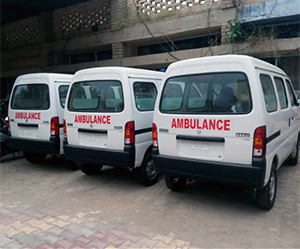New Delhi, Mar 6: Justice S Muralidhar Thursday cleared the air over the controversy on his transfer from the Delhi High Court to Punjab and Haryana High Court, saying he had replied to Chief Justice of India S A Bobde's communication that he was fine with the proposal and had no objection to it.
The controversy erupted after the Centre issued Justice Muralidhar's transfer notification close to mid night of February 26 -- the day a bench headed by him had pulled up Delhi Police for failing to register FIRs against three BJP leaders for their alleged hate speeches which purportedly led to the recent violence in northeast Delhi.
Justice Muralidhar (58), who received a grand farewell on Thursday from a huge gathering including judges and lawyers amid big rounds of applause, said he wanted to clear the confusion on his transfer and narrated the sequence of events from the time he received CJI's communication till February 26.
The Supreme Court collegium, headed by the CJI, had in a meeting on February 12 recommended the transfer of Justice Muralidhar to Punjab and Haryana High Court.
Justice Muralidhar was number three in the Delhi High Court, his parent high court as a judge.
Explaining the transfer process, he said the 5-member collegium sends to the Centre a recommendation that a judge of a high court should be transferred to another high court. The judge concerned is not at this stage under orders of transfers. That happens only when the collegium's recommendation fructifies into a notification.
“In my case, the collegium's decision was communicated to me by the CJI on February 17 by a letter which sought my response. I acknowledged receipt of the letter, I was then asked to clarify what I meant. As I saw it, if I was to be transferred from the Delhi High Court any way, I was fine with moving to the Punjab and Haryana High Court.
“I therefore clarified to the CJI that I did not object to the proposal. An explanation for my transfer reached the press...on February 20 quoting 'sources in the Supreme Court collegium', confirming what has been indicated to me a couple of days earlier,” he said.
The CJI's letter dated February 14 was delivered to Justice Muralidhar on February 17, the day when the family's pet labrador Sakhi breathed her last.
He said February 26 was perhaps the longest working day of his life as a judge of the Delhi High Court, where he has spent 14 years on the bench.
He said it began at 12:30 am with a sitting at his residence with Justice A J Bhambhani, under the orders of Justice G S Sistani, to deal with a PIL filed by Rahul Roy seeking safe passage of ambulances carrying the injured riot victims.
“When I received a call at my residence from the lawyer for the petitioner, I first called Justice Sistani to ask what should be done, knowing that the Chief Justice (CJ) was on leave. Justice Sistani explained that he too was officially on leave the whole of February 26 and that I should take up the matter.
“This fact is stated in the order passed by the bench after the hearing. Later that day, upon urgent mentioning, as the de facto CJ's bench, Justice Talwant Singh and I took up another fresh PIL on the CJ's board seeking registration of FIRs for hate speeches. After the orders passed on that day, the above two PILs remained on the CJ's Board,” he said.
Justice Muralidhar ended the speech saying the notification which was issued close to midnight of February 26 did two things.
“First, it transferred me to Punjab and Haryana High Court. Second, it appointed me to a position from where I can never be transferred, or removed and in which I shall always be proud to remain. A 'former judge' of arguably the best high court in the country. The High Court of Delhi,” he said, following a standing ovation by all the judges and the gathering, including his family members, former judges, lawyers, court staff and media persons.
Earlier in the day, a farewell programme was also organised by the Delhi High Court Bar Association.
While addressing the gathering at the bar's function, Justice Muralidhar concluded his address saying “When justice has to triumph, it will triumph ... Be with the truth - Justice will be done.”
Justice Muralidhar's mother, wife Usha Ramanathan, former Delhi High Court chief justice A P Shah, senior advocate Shanti Bhushan and former Delhi University VC Upendra Baxi were also present at the later function that was organised by the court.
Bidding adieu to Justice Muralidhar, Delhi HC CJ D N Patel said it was an occasion which has come with a saddening effect and his absence will be felt institutionally as well as personally.
Delhi government standing counsel (criminal) Rahul Mehra termed Justice Muralidhar as a “highly intellectual, courageous, upright and incorruptible judge” and sang bengali song 'ekla chalo re' to describe him.
Mehra said he joins Delhi High Court Bar Association in “strongly condemning” Justice Muralidhar's transfer.







Comments
Thank you Minister UT Khader for doing enormous amount of work and selfless services rendered to downtrodden people around while you were health minister.....you always upheld the humanity first...keep doing great job....God bless....
Add new comment